Frontal Fibrosing Alopecia Presenting as Androgenetic Alopecia in an African American Woman
106111061110611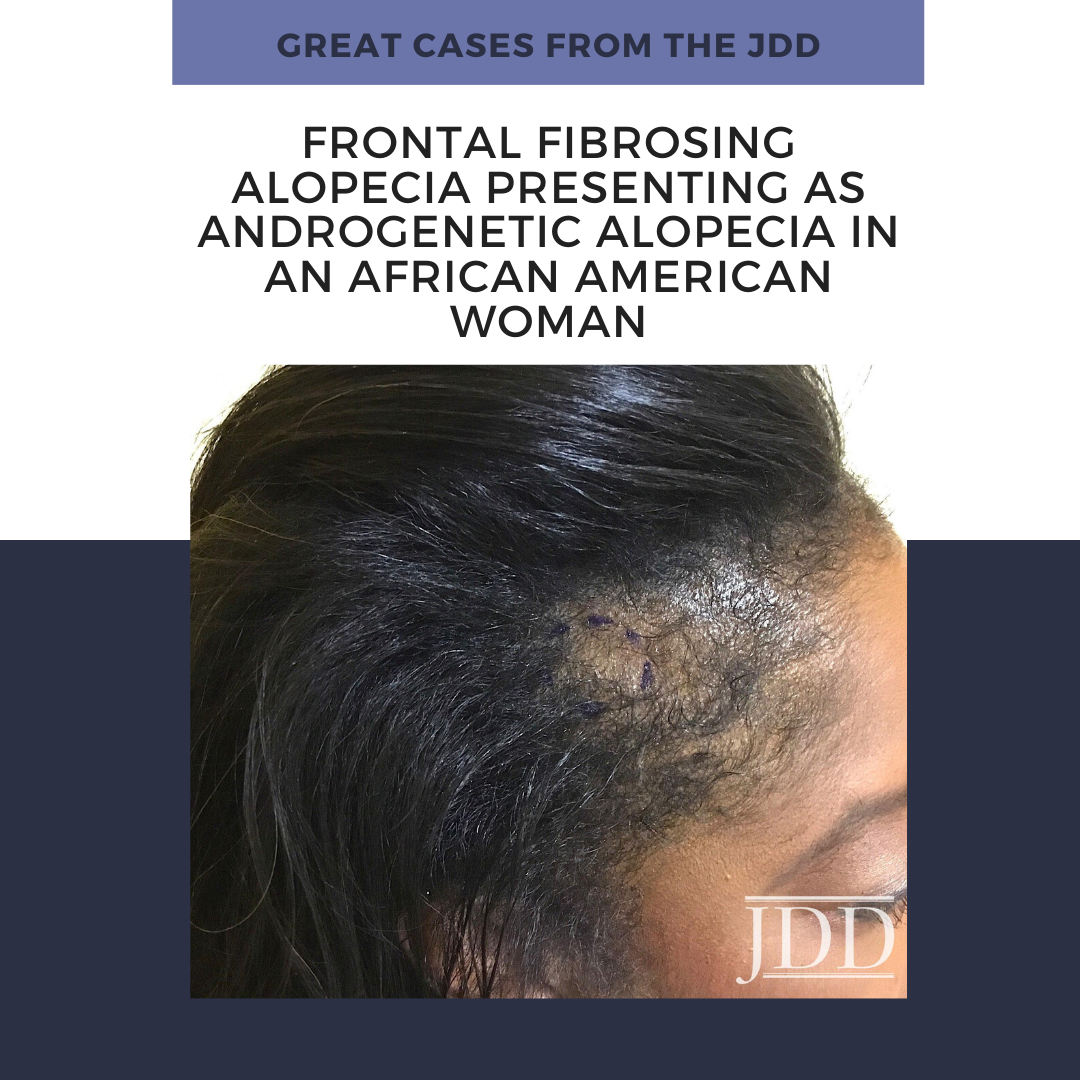 Frontal fibrosing alopecia (FFA) is a primary lymphocytic cicatricial alopecia that is currently regarded as a variant of lichen planopilaris. FFA has historically been considered rare in black patients, in whom traction alopecia, central centrifugal cicatricial alopecia, and androgenetic alopecia are frequently assumed to be more common. JDD author Kimberly Huerth, MD, ME describes a case of FFA …
Frontal fibrosing alopecia (FFA) is a primary lymphocytic cicatricial alopecia that is currently regarded as a variant of lichen planopilaris. FFA has historically been considered rare in black patients, in whom traction alopecia, central centrifugal cicatricial alopecia, and androgenetic alopecia are frequently assumed to be more common. JDD author Kimberly Huerth, MD, ME describes a case of FFA …
 Frontal fibrosing alopecia (FFA) is a primary lymphocytic cicatricial alopecia that is currently regarded as a variant of lichen planopilaris. FFA has historically been considered rare in black patients, in whom traction alopecia, central centrifugal cicatricial alopecia, and androgenetic alopecia are frequently assumed to be more common. JDD author Kimberly Huerth, MD, ME describes a case of FFA …
Frontal fibrosing alopecia (FFA) is a primary lymphocytic cicatricial alopecia that is currently regarded as a variant of lichen planopilaris. FFA has historically been considered rare in black patients, in whom traction alopecia, central centrifugal cicatricial alopecia, and androgenetic alopecia are frequently assumed to be more common. JDD author Kimberly Huerth, MD, ME describes a case of FFA … 

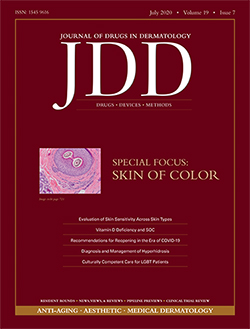 Below are the JDD issue highlights for the July Issue!
Patients with self-perceived skin sensitivity were more likely to develop objective stinging in Objective Evaluation of Skin Sensitivity Across Fitzpatrick Skin Types.
Early diagnosis allows for earlier treatment interventions in Diagnosis and Management of Primary Hyperhidrosis: Practical Guidance and Current Therapy Update.
…
Below are the JDD issue highlights for the July Issue!
Patients with self-perceived skin sensitivity were more likely to develop objective stinging in Objective Evaluation of Skin Sensitivity Across Fitzpatrick Skin Types.
Early diagnosis allows for earlier treatment interventions in Diagnosis and Management of Primary Hyperhidrosis: Practical Guidance and Current Therapy Update.
… 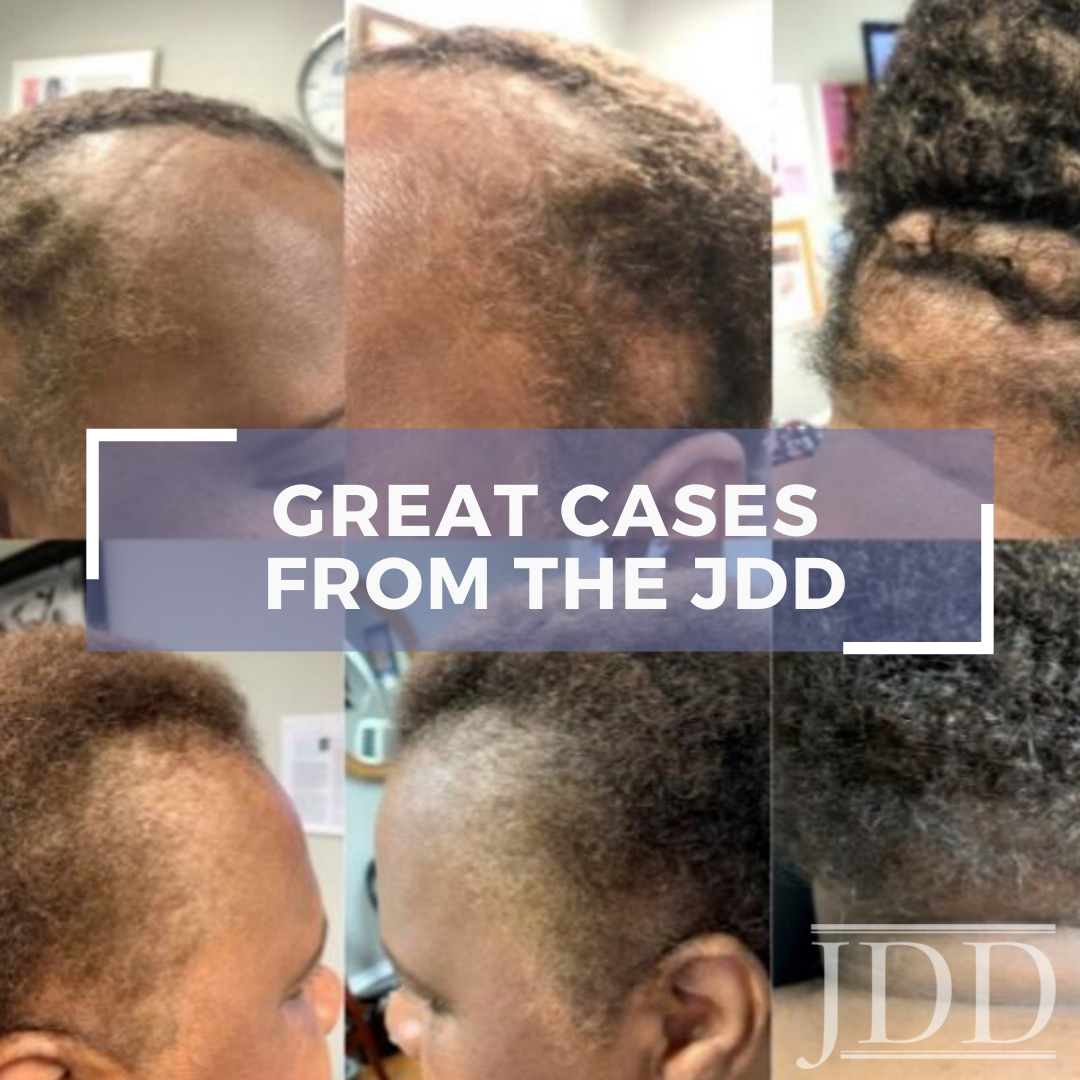 Hair loss is a common problem that spares no gender or ethnic group. As we know, there are differences in straight and curly hair including follicle shape, growth rate, and density.2Similarly, there are also differences epidemiologically in what types of hair loss are more commonly seen in different ethnic groups, as well as how it’s diagnosed and treated.2 JDD authors Cheryl Burgess MD, Wendy R …
Hair loss is a common problem that spares no gender or ethnic group. As we know, there are differences in straight and curly hair including follicle shape, growth rate, and density.2Similarly, there are also differences epidemiologically in what types of hair loss are more commonly seen in different ethnic groups, as well as how it’s diagnosed and treated.2 JDD authors Cheryl Burgess MD, Wendy R … 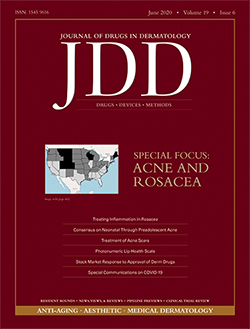 Here are the June JDD Issue Highlights:
Guest Editor Dr. James Q. Del Rosso stresses that even the best case scenario of teledermatology can never offer the same as a live in-person visit in Virtual Exams No Substitute for In-Person Care of Acne and Rosacea.
Treating Inflammation in Rosacea: Current Options and Unmet Needs, authors discuss the underlying inflammatory nature of rosacea, tre …
Here are the June JDD Issue Highlights:
Guest Editor Dr. James Q. Del Rosso stresses that even the best case scenario of teledermatology can never offer the same as a live in-person visit in Virtual Exams No Substitute for In-Person Care of Acne and Rosacea.
Treating Inflammation in Rosacea: Current Options and Unmet Needs, authors discuss the underlying inflammatory nature of rosacea, tre … 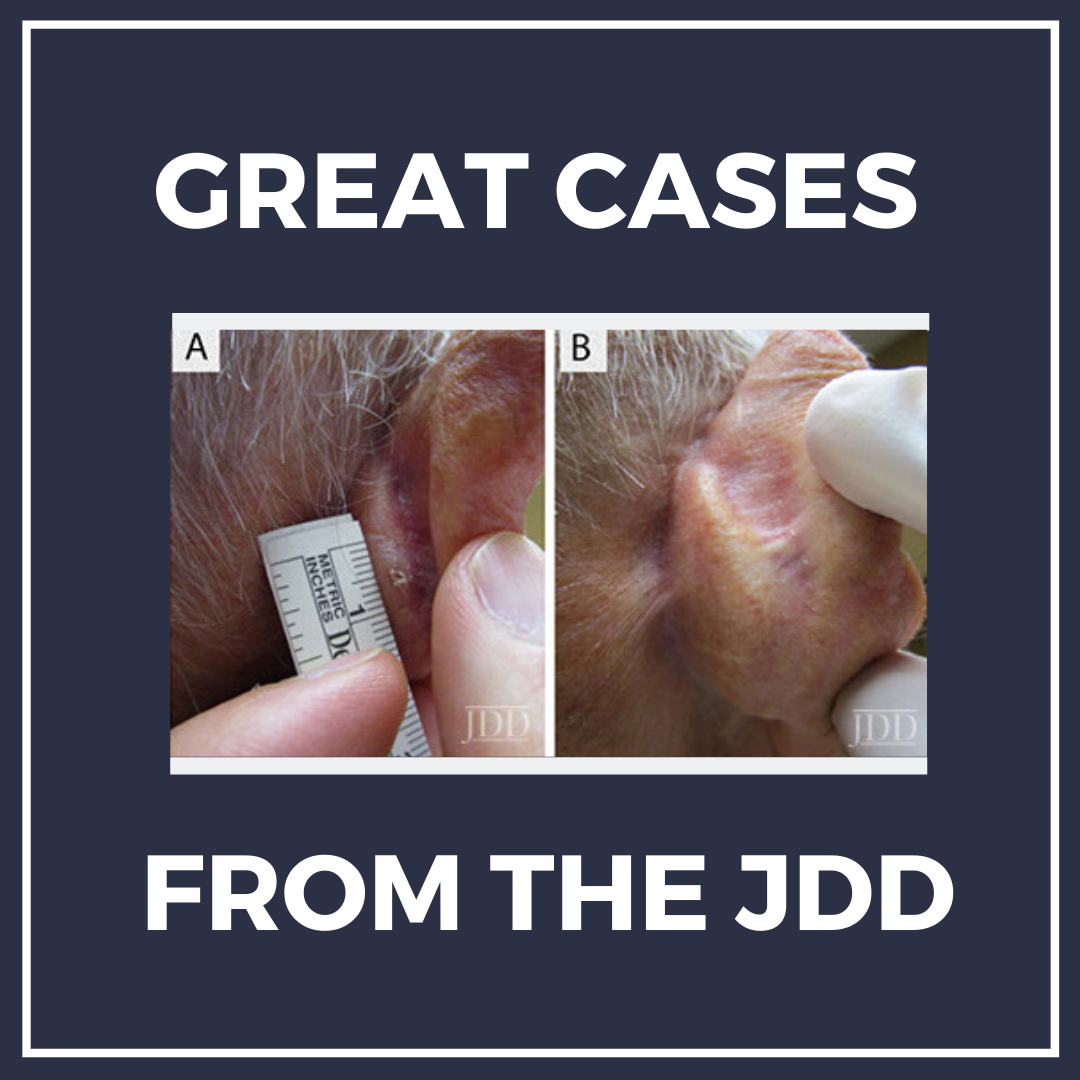 JDD Authors Rachel Fayne BA, Sonali Nanda MS, Anna Nichols MD PhD, and John Shen MD report a case of biopsy-proven invasive SCC in an 86-year-old Caucasian male with history of multiple actinic keratoses and no previous skin cancers. The patient declined surgical treatment due to concerns about cosmetic outcomes. A combination of topical 5% imiquimod cream, 2% 5-FU solution, and 0.1% tretinoin cre …
JDD Authors Rachel Fayne BA, Sonali Nanda MS, Anna Nichols MD PhD, and John Shen MD report a case of biopsy-proven invasive SCC in an 86-year-old Caucasian male with history of multiple actinic keratoses and no previous skin cancers. The patient declined surgical treatment due to concerns about cosmetic outcomes. A combination of topical 5% imiquimod cream, 2% 5-FU solution, and 0.1% tretinoin cre …